Cultural Encounters: Bridging Gaps Between Peoples
Cultural encounters, the meeting of diverse traditions, beliefs, and practices, form the essence of human connection in our increasingly globalized world. As we navigate the complexities of cross-cultural communication, the opportunity to understand and appreciate different perspectives becomes more vital than ever. From the vibrant festivals of Asia to the rich histories of Europe, cultural encounters offer a window into the soul of civilizations.
In today’s interconnected society, cultural encounters are not merely exchanges of goods or ideas but profound moments where misunderstandings can be bridged and mutual respect fostered. Whether through art, music, or storytelling, these interactions shape our understanding of others and ourselves. They remind us that while our cultures may differ, our shared humanity binds us together.
Exploring the tapestry of cultural encounters reveals a world where uniqueness thrives alongside common values. From the intricate dance rituals of Bali to the harmonious tea ceremonies of Japan, these experiences highlight the diversity of human expression. They also underscore the importance of empathy and open-mindedness in navigating life’s complexities.
This article delves into the fascinating landscape of cultural encounters, examining how they shape our global community. We’ll explore iconic examples, examine the role of cultural interactions, and consider the significance of cultural experiences in fostering understanding. By doing so, we aim to shed light on the beauty of diversity and the importance of embracing cultural differences in our interconnected world.
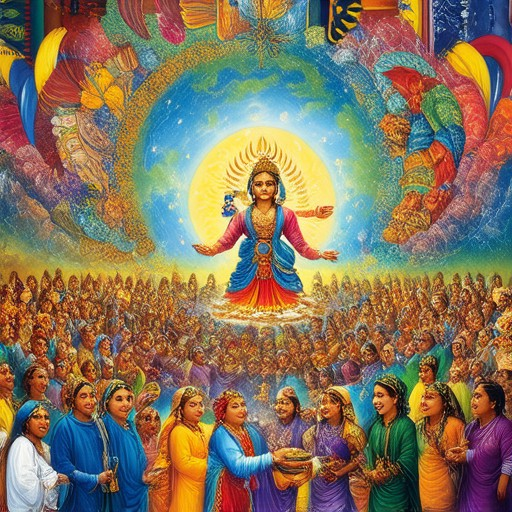
Examples of Cultures Around the World
Cultures are distinct ways of life, beliefs, customs, arts, and social behaviors that characterize a group or society. Here are some notable examples:
- American Culture : Known for its diversity, innovation, and influence on global pop culture. Famous for its fast food, Hollywood, and vibrant festivals like Mardi Gras.
- Japanese Culture : Characterized by its precision, respect for tradition, and love for sushi, anime, and tea ceremonies. Tokyo is a hub of modernity and tradition.
- Indian Culture : Rich in history, art, and spirituality. Features iconic landmarks like the Taj Mahal, vibrant festivals like Diwali, and a diverse array of cuisines.
- European Culture : Encompasses a wide range of traditions, from the artistic movements of Renaissance to the culinary delights of France and Italy. Countries like Germany and Spain showcase unique architectural styles and cultural heritage.
- African Culture : Known for its deep-rooted traditions, music, and dance. Countries like Nigeria and Kenya have vibrant cultural scenes, including events like the Masked Ball in Lagos.
- Muslim Culture : Influenced by Islamic teachings, this culture emphasizes education, family values, and religious observances. Countries like Indonesia and Pakistan showcase rich cultural tapestries blending faith and local traditions.
- Chinese Culture : Characterized by its ancient history, philosophy, and cuisine. Beijing offers a mix of historical sites and modern urban living, while Canton is famous for its dim sum and tea culture.
- Latin American Culture : A fusion of indigenous, Spanish, and African influences. Countries like Brazil and Mexico are known for their lively festivals, music, and vibrant street art.
- Australian Culture : A blend of Indigenous traditions and Western influences. Sydney is famous for its beaches, wildlife, and multicultural festivals celebrating its diverse population.
Cultural Encounters
A cultural encounter refers to the interaction between different cultures, often leading to exchanges of ideas, beliefs, and practices. These encounters can result in both conflict and cooperation, influencing the identities and narratives of the involved groups. At Bending Borders, we believe that understanding these encounters is crucial for fostering empathy and appreciation for diverse perspectives.
Beyond our platform, you might find interesting insights on cultural encounters through other resources. For instance, Cultural Canvas offers a visual exploration of global traditions, while Global Horizons provides in-depth analysis of cross-cultural interactions.
Our team at Bending Borders has curated a selection of thought-provoking articles and guides to help you navigate the complexities of cultural encounters:
- Exploring Global Traditions – Discover how different cultures celebrate holidays and rituals through our travel guides .
- Understanding Cultural Conflicts – Learn about historical conflicts arising from cultural misunderstandings in our historical section .
- Cultural Cooperation – Find inspiration from successful examples of cross-cultural collaboration in our case studies .
We encourage you to explore these resources to gain a deeper understanding of cultural encounters and how they shape our world. Whether you’re a traveler, a student, or simply someone curious about international experiences, Bending Borders is here to guide your journey.
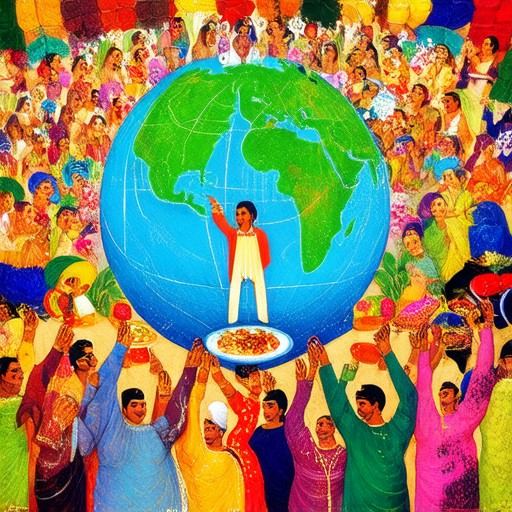
Cultural Interaction Example
The Olympic Games provide a prime example of cultural interaction on a global scale. Each edition of the Olympics brings together athletes from diverse backgrounds, representing their countries and showcasing their unique traditions, languages, and customs. This cultural exchange extends beyond the competitions to include opening ceremonies, cultural performances, and athlete interactions.
For instance, during the opening ceremony of the Tokyo 2020 Olympics, athletes from all over the world paraded into the stadium, wearing their national costumes and carrying flags. This display of unity and diversity highlighted the interconnectedness of different cultures. Similarly, the closing ceremony featured a blend of traditional and contemporary performances, further emphasizing the cultural exchange happening on the world stage.
Another aspect of cultural interaction at the Olympics is the opportunity for athletes to share stories and experiences. Many athletes use their platforms to discuss social issues, promote peace, and share their cultural heritage with a global audience. This not only fosters mutual understanding but also creates lasting memories and connections between people from different parts of the world.
Visitors to the Olympic Games can also engage in cultural interactions through various activities. From tasting food from different countries to participating in cultural workshops, attendees have multiple opportunities to learn about and appreciate diverse cultures. This collaborative environment helps to bridge gaps and foster global unity.
Overall, the Olympic Games exemplify how cultural interaction can occur on a massive scale, bringing people together to celebrate humanity’s shared values while embracing our differences. This unique blend of competition, tradition, and global connection continues to inspire and educate audiences worldwide.
- Learn more about the Olympic Games and their cultural significance
- Explore how travel and cultural experiences shape global interactions
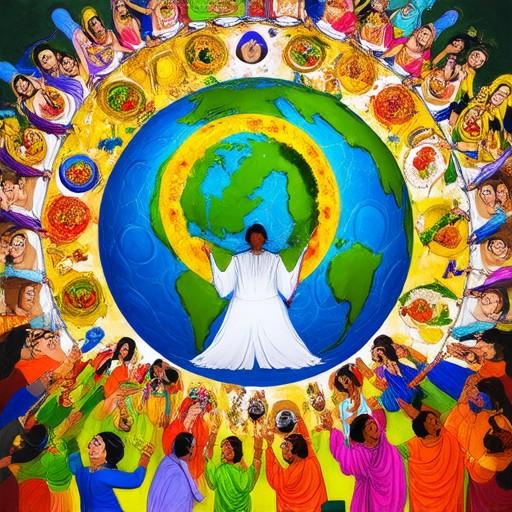
Cultural Experience Example
A cultural experience encompasses activities that allow individuals to engage with and understand distinct traditions, beliefs, and customs. One notable example is participating in Mardi Gras in New Orleans, USA. This vibrant celebration combines elements of Catholic tradition with the unique heritage of the French Creole population, resulting in a week-long event filled with parades, music, dance, and iconic foods like king cakes and gumbo. Mardi Gras symbolizes the joyous celebration before the Lenten season, offering a chance for communities to come together and share in the rich cultural tapestry of New Orleans.
What is culture?
Culture refers to the shared beliefs, values, customs, behaviors, and artifacts that characterize a group or society. It encompasses the way people live, interact, and understand the world around them. Culture is transmitted through learning and is often passed down from generation to generation.
3 Examples of Culture:
- Music : Music is a powerful expression of culture, reflecting the history, traditions, and identity of a particular group. Different cultures have distinct musical styles, instruments, and genres that set them apart.
- Art : Art serves as a window into the soul of a culture. Paintings, sculptures, and other forms of art often depict the values, stories, and rituals of a society. For example, the art of the Renaissance reflects the cultural achievements of Europe during that period.
- Fashion : Fashion is a dynamic aspect of culture that changes over time and reflects evolving societal norms and aesthetics. Different regions and communities have unique fashion styles that distinguish their cultural identities.
Related Links:
- Wikipedia – Culture
- Examples of Cultural Traditions
- The Louvre Museum – Art and Culture
- UNESCO – Intangible Cultural Heritage
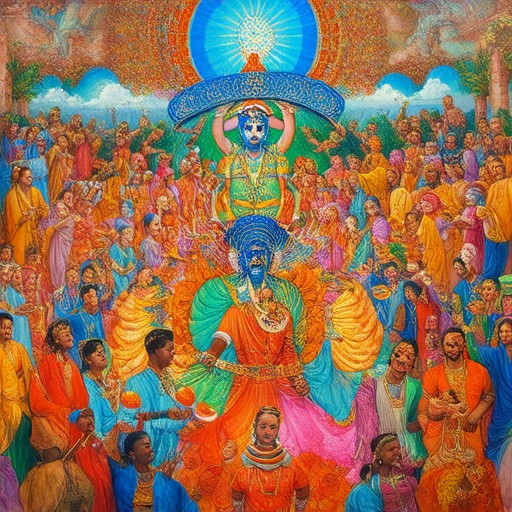
What Are Some Cultural Activities?
Cultural activities encompass a wide range of experiences that allow individuals to connect with diverse traditions, histories, and perspectives. These activities often foster appreciation for different ways of life and can enrich personal growth. Below are some common types of cultural activities:
- Traditional Arts and Crafts : Engage in hands-on activities like pottery, weaving, or woodworking to learn about artisanal techniques from various cultures.
- Performing Arts : Participate in or watch live performances such as theater, music, dance, and comedy, which showcase the creative expressions of different societies.
- Festivals and Celebrations : Attend cultural festivals that celebrate traditions like holidays, harvests, or religious events, offering a chance to experience authentic customs and rituals.
- Language and Literature : Immerse yourself in learning a new language or reading works of literature from around the world to understand different cultural narratives.
- Historical Reenactments : Watch or take part in reenactments of significant historical events to gain insight into the social and cultural contexts of various eras.
- Culinary Experiences : Explore cuisines from different countries by attending cooking classes or tasting international dishes to appreciate diverse culinary traditions.
- Visual Arts : Visit museums or art galleries to study paintings, sculptures, and other visual art forms that reflect the cultural heritage of different regions.
- Dance Workshops : Join workshops focused on specific dance styles, such as Bharatanatyam, Tango, or Salsa, to understand their cultural significance.
- Storytelling Nights : Listen to stories from different cultures, which offer insights into their values, beliefs, and daily lives.
Cultural activities not only provide entertainment but also promote understanding and empathy. By engaging in these experiences, individuals can broaden their horizons and develop a deeper appreciation for the richness of human culture.
Benefits of Participating in Cultural Activities
Engaging in cultural activities offers numerous benefits, including:
- Expanded Worldview : Gain exposure to different perspectives and lifestyles.
- Enhanced Creativity : Inspiration from diverse cultures can spark creativity in personal and professional endeavors.
- Improved Communication Skills : Interacting with people from different backgrounds can enhance verbal and non-verbal communication abilities.
- Stress Relief : Many cultural activities, such as art and music, can reduce stress and promote mental well-being.
How to Get Started
If you’re eager to explore cultural activities, consider the following steps:
- Research Local Events : Look for cultural fairs, festivals, or workshops in your area.
- Join Community Groups : Participate in local cultural clubs or organizations that host events and activities.
- Online Resources : Utilize online platforms to find virtual cultural experiences, such as live-streamed performances or interactive workshops.
- Travel Abroad : If possible, immerse yourself in foreign cultures by visiting museums, attending performances, and interacting with locals.
Conclusion
Cultural activities are a vibrant way to explore the world’s diverse traditions and enrich your own life. Whether through traditional arts, performing arts, or festivals, these experiences offer valuable insights and opportunities for growth. Embrace the chance to step outside your comfort zone and discover the beauty of different cultures.
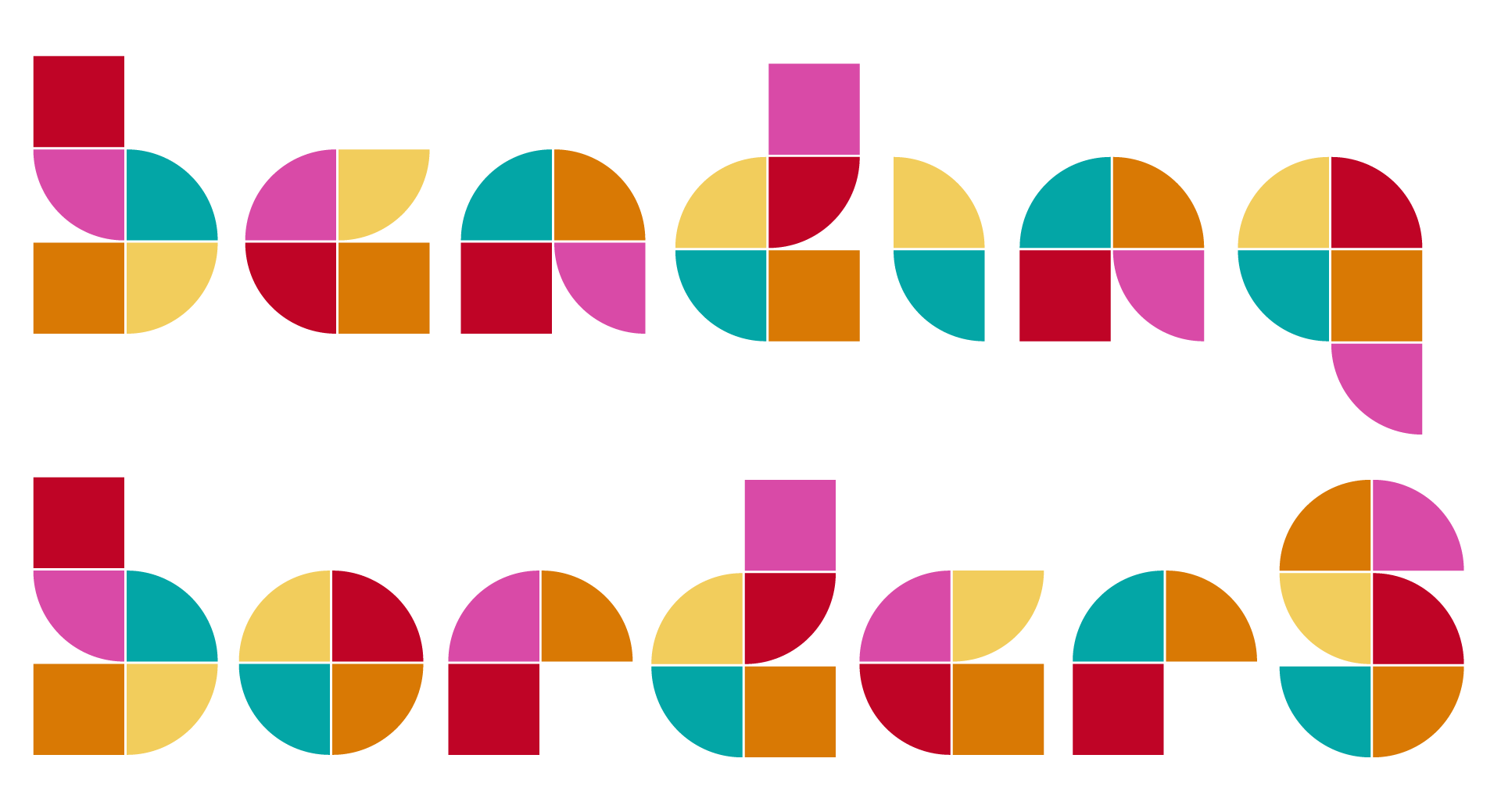



0 Comments